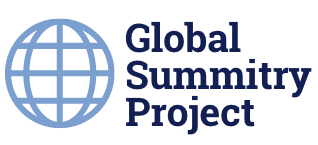Possibly the most significant G20 in years began in December when India assumed the presidency of the international forum.
And even if it is not the most significant for the world, it is certainly for India.
For Rohinton P. Medhora, economist and former president and distinguished fellow at the Centre for International Governance Innovation (CIGI), India’s presidency is a chance to show that it is a nation to be respected and that it can make dents in issues that it has only discussed before.
“This is the chance to show that India is indeed a global power, that this is its coming-out party, that it can make a difference in global issues in ways that… it has not done in the past,” Medhora said in an interview. “As the world becomes divided, especially between the U.S., China, Russia, and, of course, the European Union are always there, that India is the sort of bridge that … almost no one would object to.”
Beyond the importance of this G20 for India, Medhora also sees India’s presidency as at least as significant for other countries as it is for India, saying that presidencies over the past four or five years have been “cold.”
“This is the first serious presidency for the G20 in many years, at a time when we need the G20 and at a time when we need a serious presidency,” Medhora said. “For the rest of the world, to know that there is an organization that is managing globalization, and all its problems, is important. If you look at that list of issues that the G20 can or should be tackling, if even some of them were tackled, or if India made advances on them, it is all the world that benefits.”
India’s priorities for their presidency of the G20 Leaders’ Summit
Earlier this month, the prime minister of India, Narendra Modi, wrote an article highlighting some of India’s focus for its presidency.
In the article, published in many of India’s newspapers, Modi called on nations to:
· Strive for peace, although he does not mention Russia or Ukraine by name.
· Listen to other countries in the Global South.
· Stop the hoarding of vaccines by wealthy countries.
· Focus on sustainability and the environment.
· Depoliticize food, fertilizers, and medical products.
· Mitigate “risks posed by weapons of mass destruction and [enhance] global security.”
Other issues that India has targeted outside the scope of Modi’s article include growth and prosperity, resilient global value chains, micro, small and medium enterprises (MSMEs), logistics, and World Trade Organization (WTO) reform.
According to Medhora, if India had its way, growth and prosperity, global value chains, MSMEs, logistics, and WTO reform would be its priorities. But it’s possible that other issues supersede them.
“It is equally possible that something that is not on the formal agenda, such as a global event or just the ongoing discussions between the U.S. and China, or something else, would take over,” Medhora said.
Medhora also mentioned how much of the work at the G20 is not guided by the prime minister, but instead by the meetings of working groups as well as the many other layers of the G20, for which some meetings have already begun.
“The real work of the G20 is not guided by the op-ed of one leader. It is really the working groups that have a longer-term life, the officials, the dynamics with the other 18 members,” Medhora said. “The G20 operates at different levels and success, at the end of the day, will be a function of all of those levels coming together.”
Relationship with China
But India must deal with rising geopolitical tensions in the international system – most notably US-China tensions and Russia’s war against Ukraine in Europe.
According to Sanjay Ruparelia, Jarislowsky Democracy Chair and associate professor at Toronto Metropolitan University, tensions between the West and China continue to rise, and for countries, like India, in the Global South avoiding a second Cold War is a priority.
“You have growing confrontation between the United States and China, in which under President Biden, the lines of conflict and competition are more severely drawn. We see it, of course, in our own Indo-Pacific strategy, that Ottawa has now described China as an ‘increasingly disruptive global power,’” said Ruparelia in an interview. “On the other hand, what you see in India, Indonesia and many other countries in the Global South… is a real desire not to split the world into two opposing camps.”
This could be seen as surprising as India has their own conflicts with China, most notably around their contested border, with another conflict happening quite recently.
But due to factors like the Cold War, isolating and separating countries based on ideology and location, India has always been cautious about joining multilateral groups or factions that could limit their choices.
“India has no desire to join an Asian NATO, so it’s a member of the Quad, but it doesn’t see the Quad as an Asian NATO,” said Ruparelia. “As far as India’s concerned, its most important relationships economically, strategically, and politically remain China, Russia, and the United States, those traditional great superpowers. That is where its foreign policy is really focused.”
War in Ukraine
Modi has repeatedly called for peace regarding the war in Ukraine and in the Bali Declaration, which India was a key participant in drafting, most G20 nations condemned the war for “causing immense human suffering and exacerbating existing fragilities in the global economy.” However, India, and many other countries in the Global South, are hesitant to officially support Ukraine, opting instead for a position of neutrality.
“Much to the West’s chagrin, a lot of the world has not come out loudly and blindly in favour of the Western position,” Medhora said. “The countries that have not come out strongly anti-Russia have reasons of their own… [Modi] has strongly, and in Putin’s presence, stated that it would be nice if there were no war, and that was widely interpreted as a bit of a caution to Putin about his war.”
Just like Indonesia’s G20, the war in Ukraine is likely to be a major topic for discussion, more so as energy becomes more expensive, and causes economic reckoning throughout Europe.
“The war in Ukraine, there is no end in sight. The ramifications for the global economy seem to be increasing,” Ruparelia said. “We are facing a huge energy crunch in the winter, particularly for Europe. Those reverberations will continue, and India is going to be in the chair handling that.”

